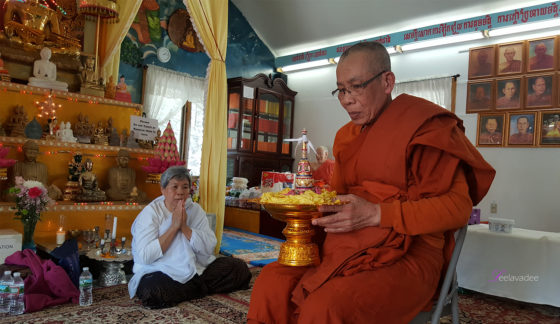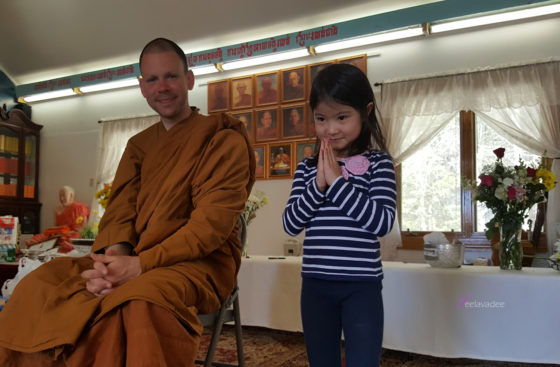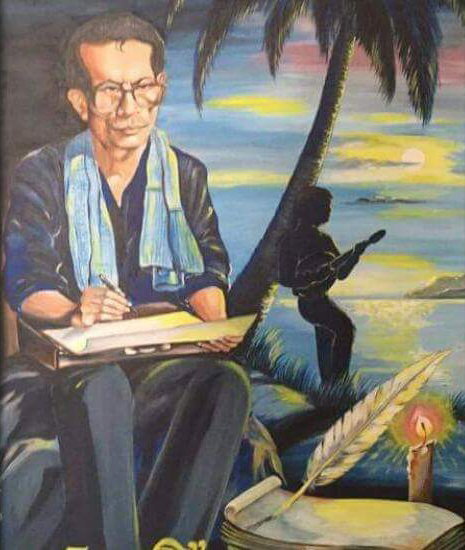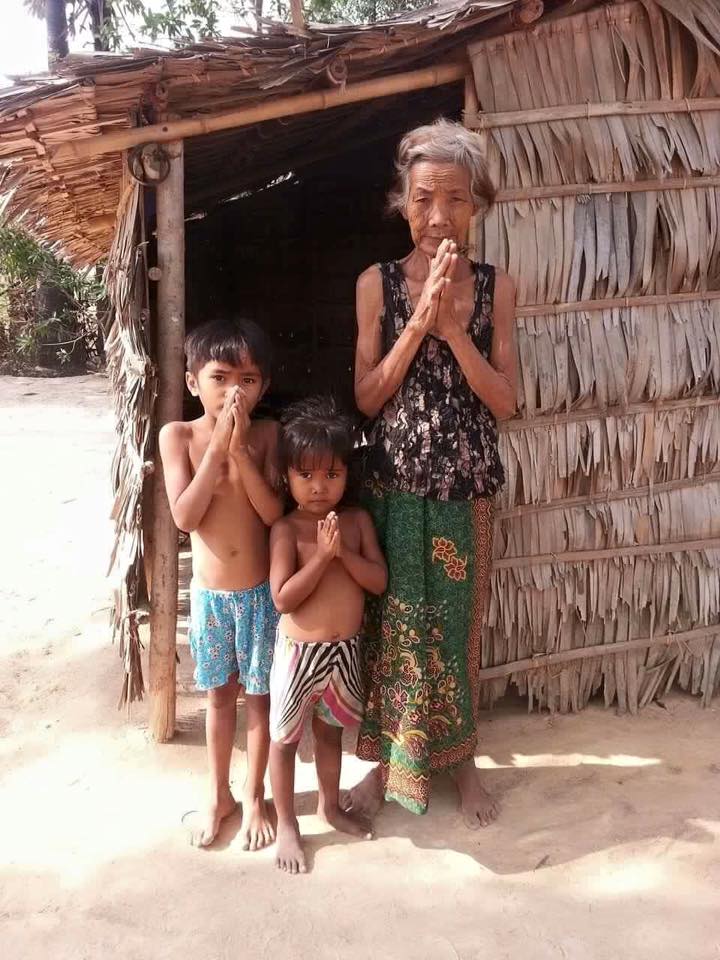
Lord Buddha with King Pasenadi Kosala, the King of Kosala, north of Magadha ruled by King Bimbisara.
Verse 60: Long is the night to one who is wakeful; long is (the journey of) one yojana to the traveller who is tired; long is samsara (round of rebirths) to the fool, who is ignorant of the true Dhamma (the Teaching of the Buddha).
1. Balavagga: Chapter on the Fool. Bala is the opposita of pandita; it means those who are ignorant, stupid and mentally dull. They cannot think or act right.
2. yojanam/yojana: a measure of length, about twelve miles.
The Story of a Person
While residing at the Jetavana monastery, the Buddha uttered Verse (60) of this book, with reference to a certain young man and King Pasenadi of Kosala.
One day King Pasenadi, while going out in the city, happened to see a beautiful young woman standing at the window of her house and he instantly fell in love with her. So the king tried to find ways and means of getting her. Finding that she was a married woman, he sent for her husband and made him serve at the palace. Later, the husband was sent on an impossible errand by the king. The young man was to go to a place, a yojana (twelve miles) away from Savatthi, bring back some Kumuda lotus flowers and some red earth called ‘arunavati’ from the land of the dragons (nagas) and arrive back at Savatthi the same evening, in time for the king’s bath. The king’s intention was to kill the husband if he failed to arrive back in time, and to take the wife for himself.
Hurriedly taking a food packet from his wife, the young man set out on his errand. On the way, he shared his food with a traveller. He also threw some rice into the water and said loudly, “O guardian spirits and dragons inhabiting this river! King Pasenadi has commanded me to get some Kumuda lotus flowers and arunavati red earth for him. I have today shared my food with a traveller; I have also fed the fish in the river; I now share with you the benefits of the good deeds I have done today. Please get the Kumuda lotus and arunavati red earth for me.” The king of the dragons, hearing him, took the appearance of an old man and brought the lotus and the red earth.
On that evening, King Pasenadi, fearing that the young husband might arrive back in time, had the city-gates closed early. The young man, finding the city-gates closed, placed the red earth on the city-wall and stuck the flowers on the earth. Then he declared loudly, “O citizens! Be my witnesses! I have today accomplished my errand in time as instructed by the king. King Pasenadi, without any justification, plans to kill me.” After that, the young man left for the Jetavana monastery to take shelter and find solace in the peaceful atmosphere of the monastery.
Meanwhile, King Pasenadi, obsessed with sexual desire, could not sleep, and kept thinking out how he would get rid of the husband in the morning and take his wife. At about midnight, he heard some eerie sounds; actually, these were the doleful voices of four persons suffering in Lohakumbhi Niraya . Hearing those weird voices, the king was terrified. Early in the morning, he went to the Buddha, as advised by Queen Mallika. When the Buddha was told about the four voices the king heard in the night, he explained to the king that those were the voices of four beings, who were the sons of rich men during the time of Kassapa Buddha, and that now they were suffering in Lohakumbhi Niraya because they had committed sexual misconduct with other people’s wives. Then, the king came to realize the depravity of the deed and the severity of the punishment. So, he decided then and there that he would no longer covet another man’s wife. “After all, it was on account of my intense desire for another man’s wife that I was tormented and could not sleep the whole of last night,” he reflected. Then King Pasenadi said to the Buddha, “Venerable Sir, now I know how long the night is for one who cannot sleep.” The young man who was close at hand also said, “Venerable Sir, because I had travelled the full distance of a yojana yesterday, I, too, know how long the journey of a yojana is to one who is weary.”
Combining their two statements, the Buddha spoke in verse as follows:
Verse 60: Long is the night to one who is wakeful; long is (the journey of) one yojana to the traveller who is tired; long is samsara (round of rebirths) to the fool, who is ignorant of the true Dhamma (the Teaching of the Buddha).
At the end of the discourse, the young man attained Sotapatti Fruition.
Dhammapada Verse 60
Annatarapurisa Vatthu
Digha jagarato ratti1
digham santassa yojanam2
digho balana samsaro
saddhammam avijanatam.
Source: Tipitaka



















